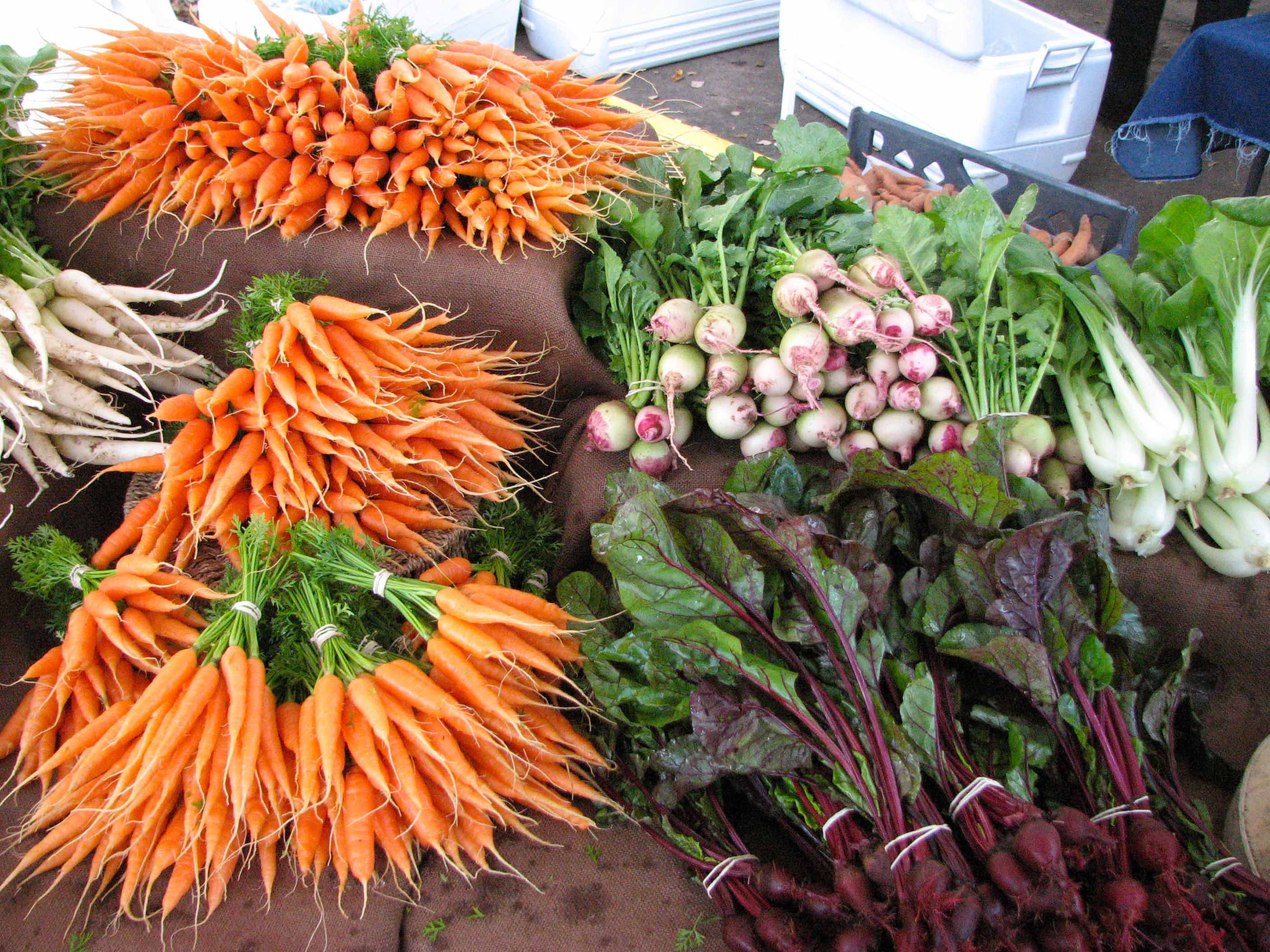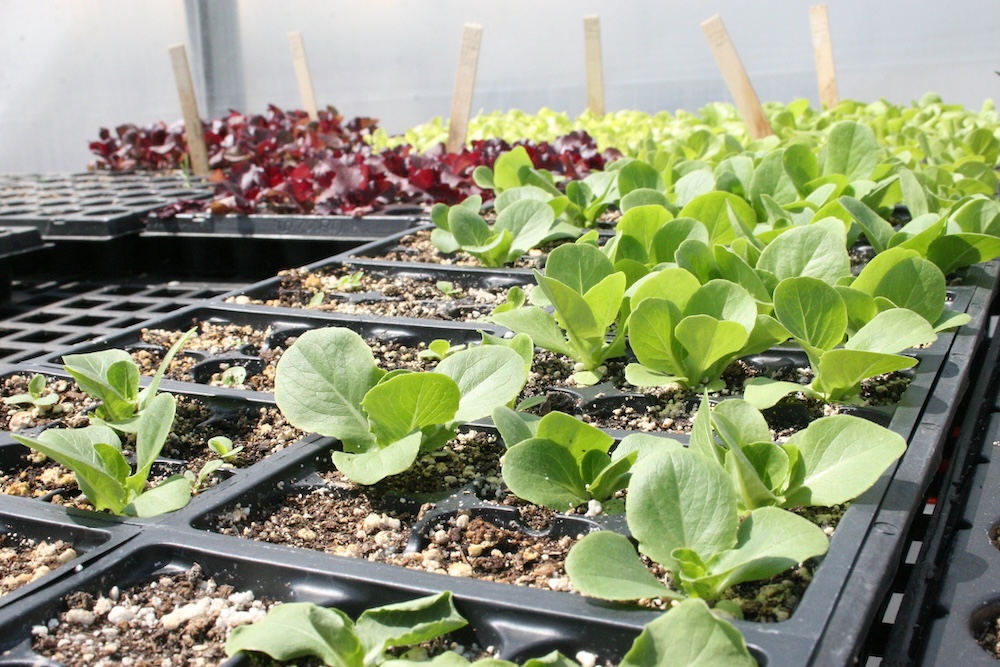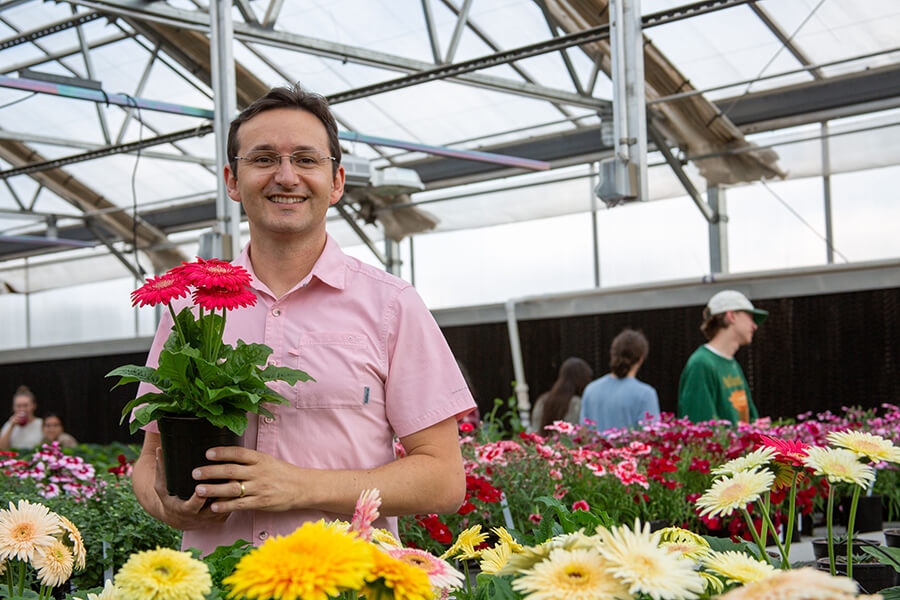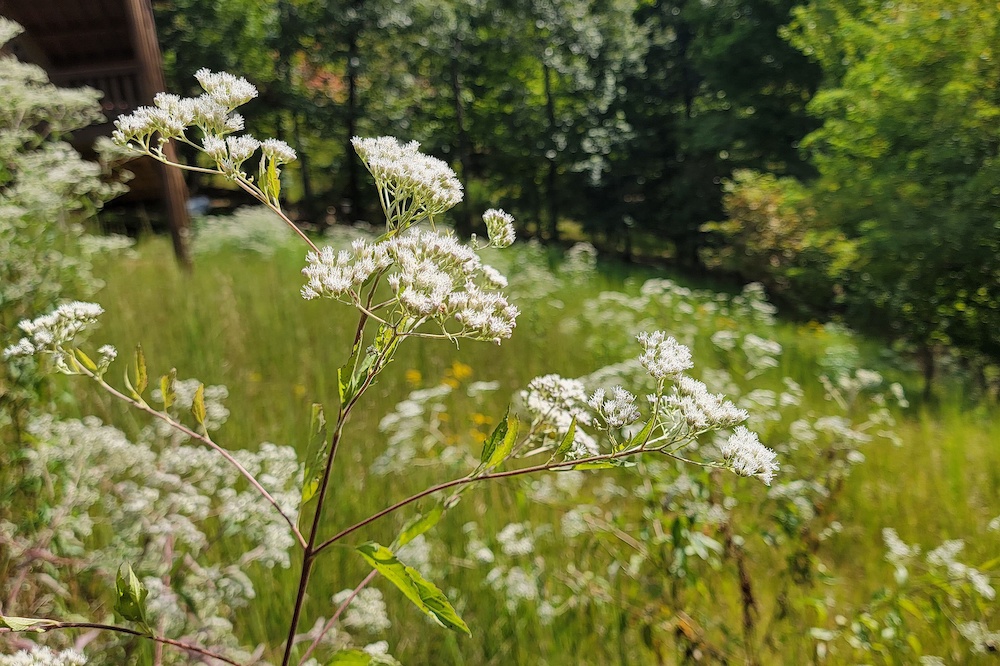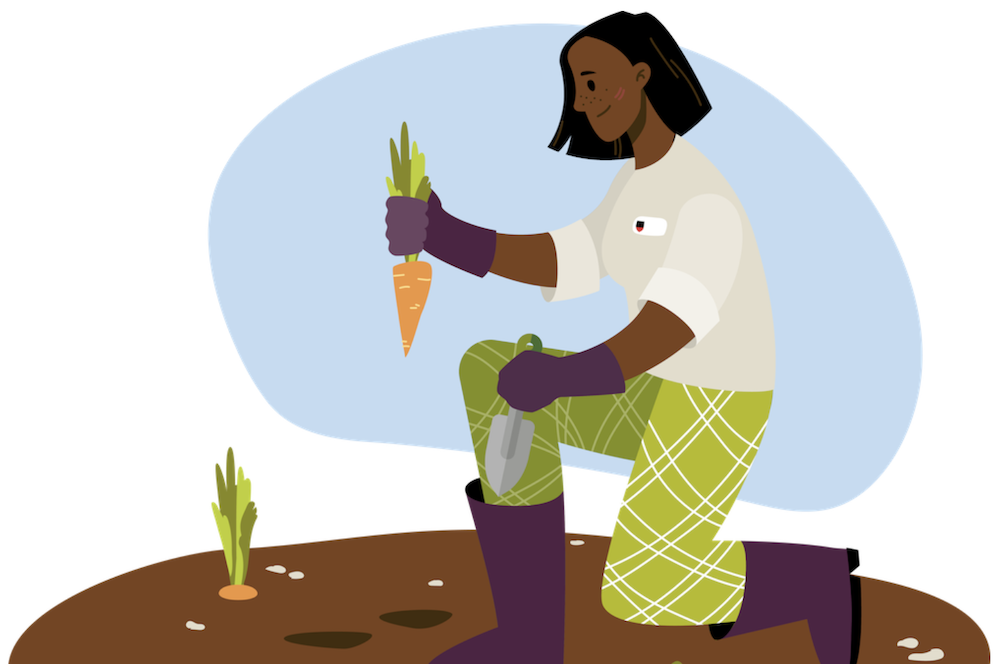Carrots have a reputation of being difficult to grow in Georgia’s clay soils. With a little knowledge and a few tricks, University of Georgia Extension experts say home gardeners can have success cultivating carrots.
Carrots are a cool-season crop, and now is the time to plant them. Begin by selecting a site where seeds will get eight to 10 hours of sunlight.
The key to growing carrots is to start with heavily amended, well-drained, organic soil, according to UGA Extension vegetable specialist Bob Westerfield. Carrots like a soil pH of 5.5 to 6.5.
Till and amend soil
Prepare the site by tilling to a depth of 10 inches. If your garden is made up of hard, clay soil, Westerfield recommends growing carrots in containers or raised beds at least 8 inches to 12 inches high.
Fill the beds with a rich mix of compost, manure and topsoil. If you prefer to grow carrots in a traditional manner, as in the ground, incorporate 6 inches of sandy topsoil or another organic amendment.
There are two schools of thought about how to plant carrot seeds: plant in traditional rows or define an area—e.g., community garden raised-bed plots—and broadcast the seeds. Either way, lay the seeds on the soil bed and sprinkle about a quarter-inch of soil on top. Consider mixing in a few radish seeds at planting.
Carrot seeds are very small. To ensure good seed-to-soil contact with such small seeds, it is a good idea to lightly tamp the soil down. A tamper is useful to put just enough pressure for contact without compacting the soil.
Add water and wait
Now, water the seeds and be patient. Carrots take several weeks to germinate. Carrots need to be irrigated on a regular basis if there is not consistent rainfall. Provide about one inch of water every seven to 10 days if possible. Carrots grown in raised beds or containers may need to be watered more frequently as they tend to dry out quickly. Overhead irrigation works, but drip irrigation or soaker hoses conserve moisture and help prevent foliage diseases.
Once carrot plants come up, thinning is essential. If the carrots become too crowded underground, they can become stunted. Thinning can be time-consuming, especially if you broadcast planted, but don’t skip this step. Instead of pulling up plants to thin your patch, use scissors to cut seedlings off at the root. This will minimize disturbance of the remaining plants. The goal should be about 2 inches between carrot plants.
When the carrot tops are about 3 inches tall, Westerfield recommends adding pine straw, wheat straw or other organic mulch around the plants to cut back on weeds and conserve moisture. Pay attention to the “days until harvest” total on the seed packet. When close to harvest time, pull one or two sample carrots, Westerfield said. Carrots should be at least a half-inch in diameter when harvested. When harvesting, be very gentle so as not to damage your crop.
As the soil cools, carrots actually get sweeter. Some gardeners leave the carrots in the ground over the winter with good results.
Not just long and orange
The shorter or half-long varieties of carrots produce the best quality in gardens with heavy soils. The longer varieties prefer sandy soils.
When choosing a cultivar to plant, keep in mind that carrots don’t have to be orange. The Chantenay Red Core is reddish, while Purple Haze is obviously purple. Danvers 126, Scarlet Nantes and Nantes are all recommended orange cultivars. Look for carrot seeds at feed and seed stores, hardware stores and big box retailers. There are also several varieties available for order through seed companies like Burpee and Johnny’s Selected Seeds.
“With carrots, you are never quite sure what you have until you pull them out and see the golden nugget on the other end,” Westerfield said. “I have had years where I have produced outstanding carrots and other years where mice and voles ate my precious crop.”
For more information about gardening in Georgia, contact your local University of Georgia Extension agent at 1-800-ASK-UGA1.

